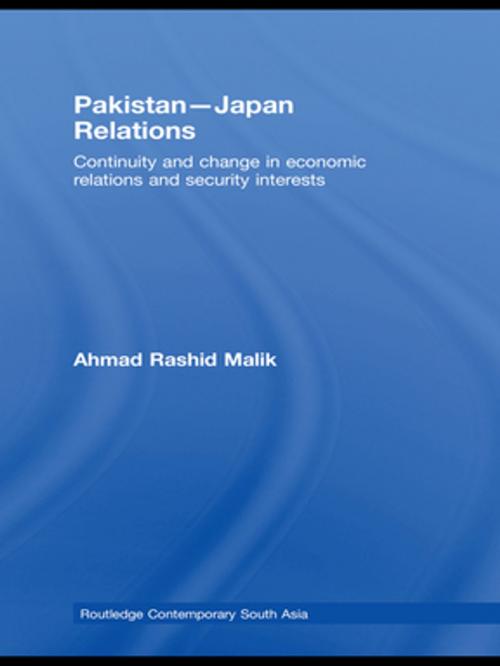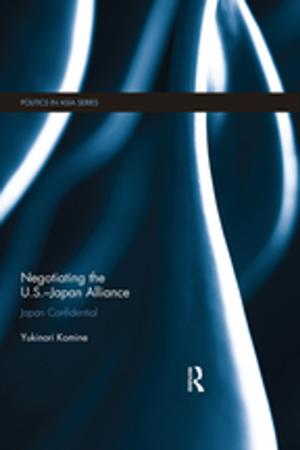Pakistan-Japan Relations
Continuity and Change in Economic Relations and Security Interests
Nonfiction, Social & Cultural Studies, Social Science, Cultural Studies, Ethnic Studies, Political Science, International, International Relations| Author: | Ahmad Rashid Malik | ISBN: | 9781134041961 |
| Publisher: | Taylor and Francis | Publication: | September 3, 2008 |
| Imprint: | Routledge | Language: | English |
| Author: | Ahmad Rashid Malik |
| ISBN: | 9781134041961 |
| Publisher: | Taylor and Francis |
| Publication: | September 3, 2008 |
| Imprint: | Routledge |
| Language: | English |
This is the first book-length study to explain the complex nature of Pakistan-Japan relations. It analyses the evolution and development of relations between the two countries by defining two key factors: economic interests and security concerns in the US-led global security system. Providing a thorough analysis of the history of relations between the countries, the important role Pakistan played in the context of peace and conflict resolution in East Asia during 1947-52, which helped ending the Occupation of Japan and restoring the country’s post-war economy, is highlighted. Pakistan then emerged as the largest trading partner of Japan only after the United States. It was Pakistan’s benevolent role that helped Japan to comeback to Asia in the 1950s as the author explains these events in greater detail that are not commonly known. In the 1960s and also in the 1980s during the Soviet occupation of Afghanistan, Pakistan emerged as one of the largest recipients of Japanese aid.
The author explains that Japanese strategic aid to Pakistan was diverted to strengthen democratic values and institutions after the end of the Cold War. He then clarifies that Pakistan-Japan relations were dominated by two main issues during the 1990s, Japanese economic cooperation in Pakistan's trade liberalization, and suspicion about Pakistan's nuclear program. In conclusion, the author states that there has been a remarkable continuity in the area of economic relations, though there have been changes in security concerns.
The book sets out future prospects for economic and diplomatic relations between the two countries, and it will be of interest to academics working in the field of International Relations, International Political Economy, and Asian Studies. For intellectuals, diplomats, and businessmen, the book would be a handy reference.
This is the first book-length study to explain the complex nature of Pakistan-Japan relations. It analyses the evolution and development of relations between the two countries by defining two key factors: economic interests and security concerns in the US-led global security system. Providing a thorough analysis of the history of relations between the countries, the important role Pakistan played in the context of peace and conflict resolution in East Asia during 1947-52, which helped ending the Occupation of Japan and restoring the country’s post-war economy, is highlighted. Pakistan then emerged as the largest trading partner of Japan only after the United States. It was Pakistan’s benevolent role that helped Japan to comeback to Asia in the 1950s as the author explains these events in greater detail that are not commonly known. In the 1960s and also in the 1980s during the Soviet occupation of Afghanistan, Pakistan emerged as one of the largest recipients of Japanese aid.
The author explains that Japanese strategic aid to Pakistan was diverted to strengthen democratic values and institutions after the end of the Cold War. He then clarifies that Pakistan-Japan relations were dominated by two main issues during the 1990s, Japanese economic cooperation in Pakistan's trade liberalization, and suspicion about Pakistan's nuclear program. In conclusion, the author states that there has been a remarkable continuity in the area of economic relations, though there have been changes in security concerns.
The book sets out future prospects for economic and diplomatic relations between the two countries, and it will be of interest to academics working in the field of International Relations, International Political Economy, and Asian Studies. For intellectuals, diplomats, and businessmen, the book would be a handy reference.















